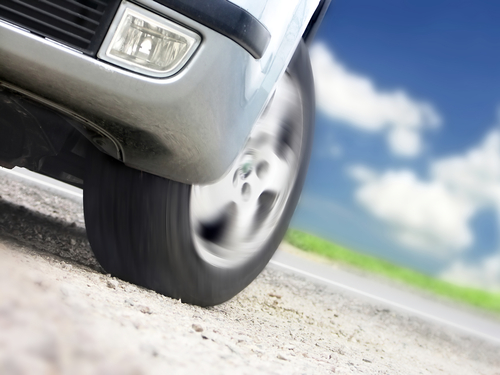It’s always important to change your tire type based on the season. Now that the roads are getting warmer, let’s take a look at what goes into designing a summer tire and why they’re a smart choice for this time of year.
The Material
Because their conditions demand different performance and behaviour, summer tires (sometimes called “performance” tires) differ from winter tires in rigidity and elasticity. The tread compound of a summer tire is comprised of less pure rubber than winter tires, giving them just the right balance of softness and hardness to handle well in a variety of conditions, just so long as it’s not ice or snow! The compound is also made to hold up in higher temperatures where the softer winter tire would be more likely to fail. Summer tires are made to operate best at temperatures above 7 degrees celsius, and once they go below that, they harden and lose traction.
The Design
Treads, siping, and other structural characteristics also play a critical role. Since they’re not meant for winter and don’t need to push through muck or slush, summer tires possess a more shallow tread depth. Their sidewalls are also generally stronger than those on winter tires and the tread pattern is carefully designed with large grooves and fuller blocks. Unlike winter tires, which are designed with finer and more intricate siping patterns, summer tires prioritize a dynamic shaping strategy without worrying about digging around in the snow. As a result, using a summer tire during winter is likely to fill up those larger grooves with too much icy material!
The Performance
While you might assume that summer tires don’t perform so well in wet conditions, the opposite is actually true. Thanks to the combination of the tread compound and tread pattern, summer tires are able to keep a good grip on the road and optimize turns and stopping distance in both dry and wet conditions. With high performance summer tires, you’ll get directional treads that do a particularly good job with hydroplaning resistance. The design of winter tires, on the other hand, puts first priority on dealing with ice and snow rather than fluids. Because of these differences, failing to switch tires as the roads heat up is a sure way to compromise both safety and performance!
Have you fitted your BMW with a pair of summer tires for optimized durability and safety? Give the Motorwerkes team a call at (403) 768-3161, we’re here to help you get only the best performance out of your vehicle!

